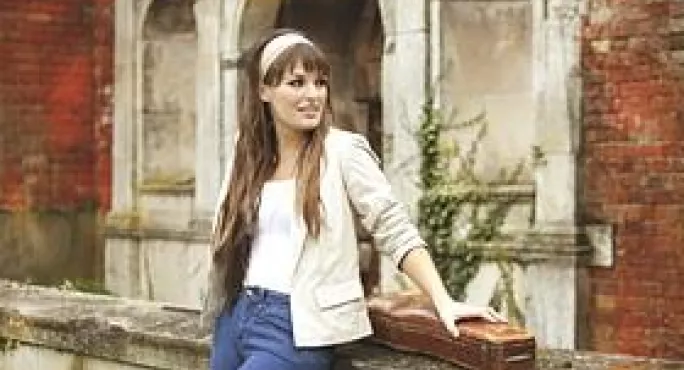Nicola Benedetti: My best teacher

When I was eight I auditioned for the international music school - the Yehudi Menuhin School - and went there when I was 10. I was there until I was 15, then left school.
After that I never attended full-time education again. I went to some local schools and had some private tuition and did my GCSEs in among lots of concerts. I was meant to do “x” amount of hours and I remember realising in the end I had done under half of that, but I made good grades.
This is very predictable, but my best teachers were instrumental music teachers. The first was Brenda Smith. She taught the Suzuki method at Wellington School in Ayr. She was a huge inspiration to me and a huge influence.
She was very upbeat and positive - always hugely energetic, getting everybody going. She was the ideal teacher for a young child - she taught me from the ages of four to 10 and it was she who suggested I apply to the Yehudi Menuhin School.
The school was a big change, no question. It was a boarding school and a large percentage of pupils had musicians in the family or came from Eastern European countries where the classical music tradition is in the forefront, so I did come from a very different background from a lot of the kids. I was really taken care of by my two violin teachers - Natasha Boyarsky and Lutcia Ibragimova - and became best friends with one of their daughters.
I was homesick once or twice, but for me everything was riding on the success of the violin lessons. We had four hours a week of individual lessons and, providing the next violin lesson went well, I was a happy girl. On top of that, there were a number of musicianship lessons and three to six hours of practice every day. It was an 8am start and the last scheduled activity was at 8pm.
They were very strict teachers, both of them, but they were fantastic and of the highest, highest quality, as was Maciej Rakowski, the teacher I studied with from the ages of 15 to 20.
They had both been studying the violin and surrounded by an intensely musical environment since a young age. Both had grown up in Russia and come over to Britain later on in life.
There’s a culture in Russia, a way of studying that is very much part of the tradition there, and part of the way of life. It’s incredibly hardworking. It’s something I fit into very easily. My mum and dad are both naturally hardworking and quite determined people, so I think I probably have that in my genes, but I think it was also to do with the fact that the violin was at the core. I would have done anything to play the violin better.
All of them were inspirational for different reasons. Maciej was inspirational through his demonstrations. He would demonstrate, and I would fall in love with how it sounded and try to work out how to copy that.
Before Maciej, I was learning to play the violin - that’s difficult enough. But then you begin to find your taste and your sound, and to find your style with composers like Beethoven, Bach and Mozart. He really got me to form my musical language.
The Russian teachers at school were an inspiration through the stories they would tell. They fired my imagination and took me into another world. They would tell you about the great violinists, that they worked so many hours, and how hard they had worked to master one particular thing. They were inspirational stories that got your blood boiling. They also passed their love for music on to me.
I owe so much to all these teachers. I can’t begin to tell you.
Nicola Benedetti will make her first appearance at the Edinburgh International Festival this August, joining the London Symphony Orchestra at the Usher Hall. www.eif.co.uk. She was talking to Emma Seith Born: West Kilbride, 1987 Education: Wellington School, Ayr; Yehudi Menuhin School, Surrey Career: professional violinist.Personal profile
Keep reading for just £1 per month
You've reached your limit of free articles this month. Subscribe for £1 per month for three months and get:
- Unlimited access to all Tes magazine content
- Exclusive subscriber-only stories
- Award-winning email newsletters



